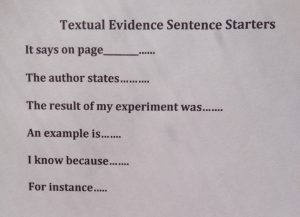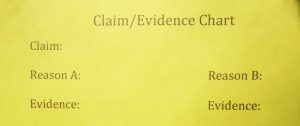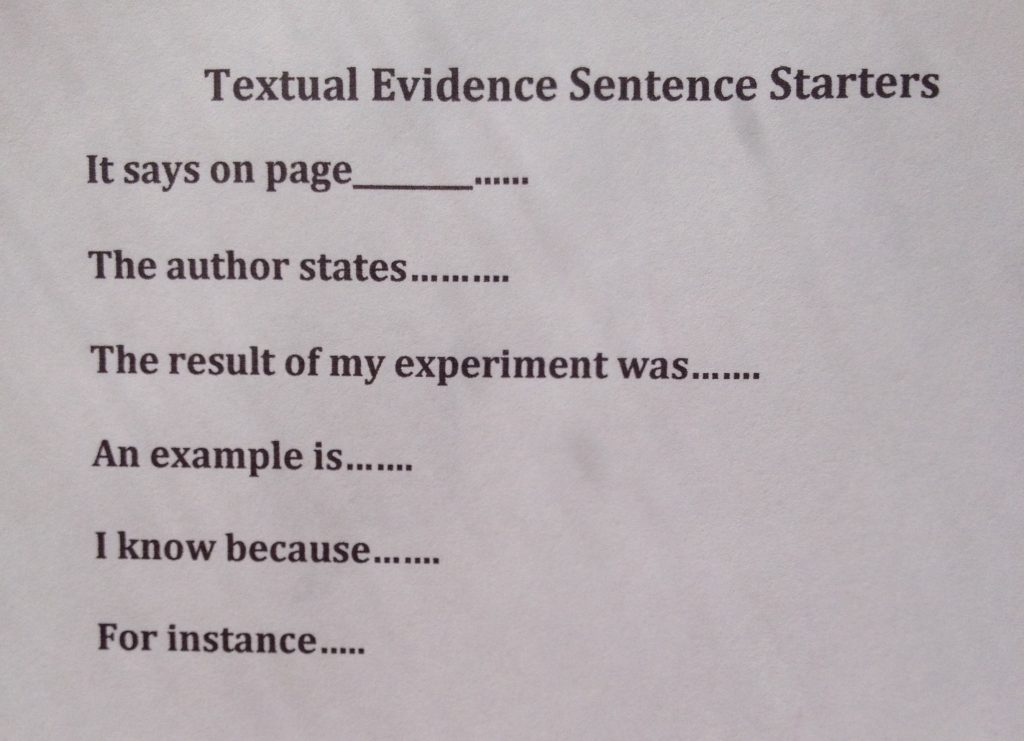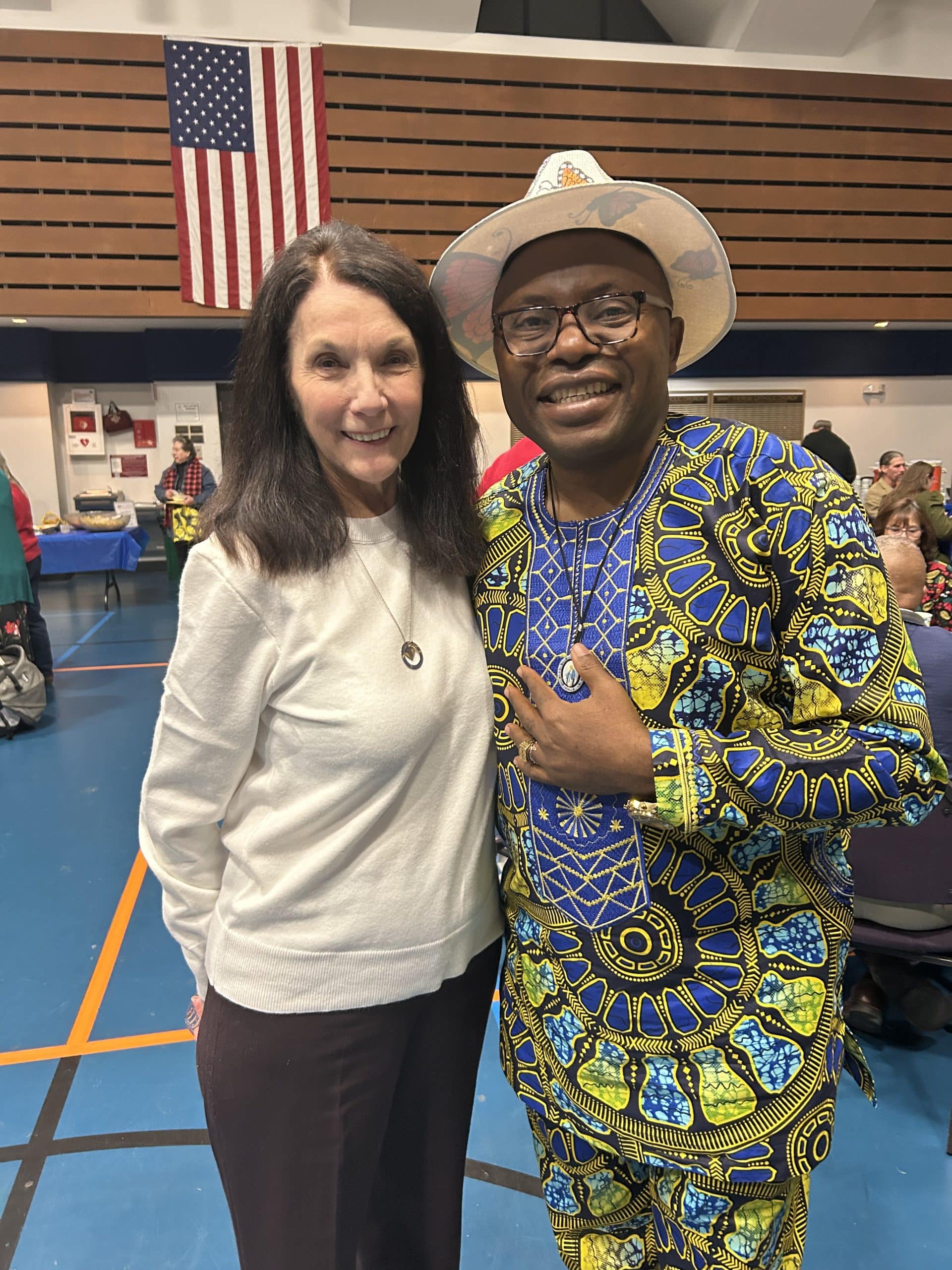Good questions are the principal element in the development of critical thinking skills. Questions encourage collaboration amongst students and teachers and support the learning process. In simply providing an answer to students, we command a halt to the thinking process. The reverse is also true. Simply accepting an answer from a student is not enough. Asking for proof or evidence to support an answer enhances the critical thinking skills and encourages discussion points forcing students to deal with complexity and active learning. Good questioning skills are not enough.
Teachers require students to provide claims and evidence in science class more so than other core subjects. However, proof and evidence is also important in all subjects when students are required to make a claim.
Citing textual evidence in literature is more than repeating what is stated in text. When reading, textual evidence is how students support what they know. It requires students to engage in the text and share aspects of the content that support their thinking.
In mathematics, memorization of rules, facts, and procedures is not enough. Mathematics requires reasoning with claims and evidence so students acquire number sense. Without understand the reasoning behind the rules of math, you are simply memorizing procedures. Proving an answer with diagrams, manipulatives, and/or drawings is evidence of an answer.
Getting students to explain why by choosing a piece of evidence is a challenge. It moves the learning from evidence to interpretation. When students are looking for evidence, it slows the speed of a discussion and provides time for thinking through the process.
When students collaborate in discussions (argumentation) in a group setting they are learning various reasoning, perspectives, and claims of proof from other students. This type of discussing (arguing) involves reasoning and reflection and contributes to deeper conceptual learning. It also builds and develops social awareness.
Many people have trouble arguing productively. It is important to distinguish evidence from theory or opinion. Students (learners) want teachers as well as parents to give them the answers. Piaget claimed that learners should be allowed to discover on their own. When teachers or parents make decisions for students, it deprives them of a learning experience.
Current classroom practices give little opportunity for the development of constructive discussions. The most used strategy for helping students of all ages (pre-k to college) to develop reasons for answers that are more than ‘because’ is to use open-ended questions. Best practice is for students to back up a claim or an answer with evidence.



